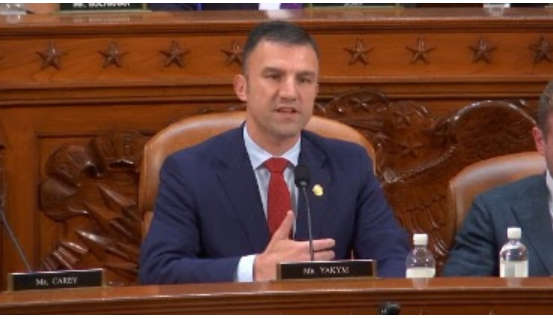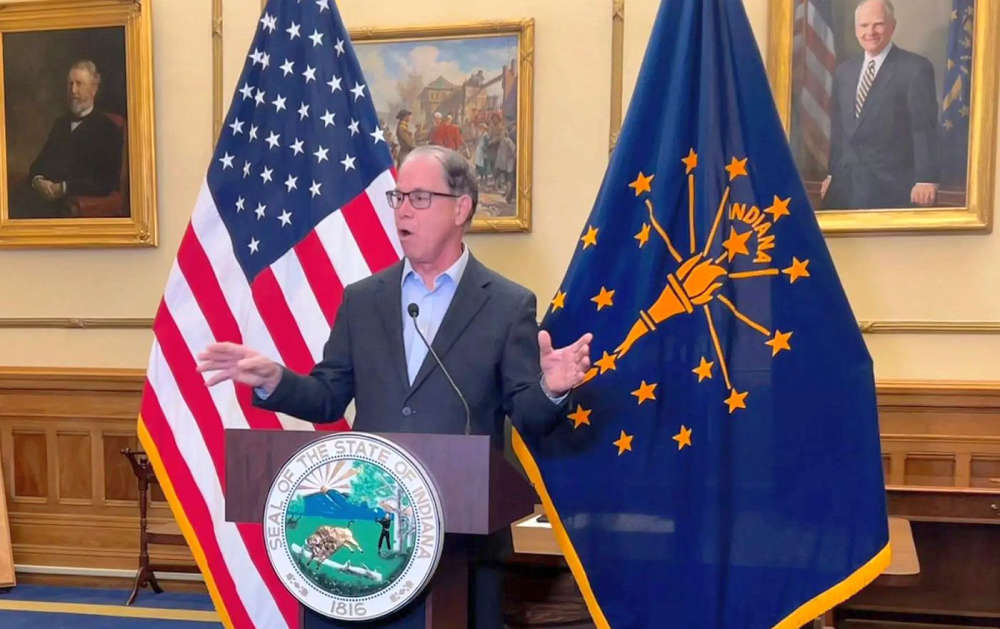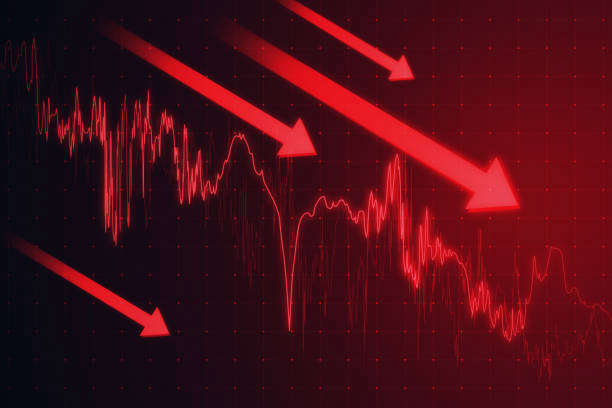
Congressman Rudy Yakym (IN-02) highlighted the threat of China’s overcapacity in a Ways and Means Committee hearing with United States Trade Representative (USTR) Ambassador Jamieson Greer.
“China’s promise to shift to a consumption economy remains just that, a promise,” Rep Yakym said. “Instead, it’s doubling down on constructing more factories to flood the world with subsidized exports. Countries around the world are recognizing the severe threat this overcapacity represents, and I urge USTR to work with likeminded countries to hold China accountable.”
Watch the full exchange here.
Read the full exchange below:
Rep. Yakym: “Ambassador Greer. It's good to see you today, as we discussed in the past, Indiana Second District has the type of production economy that he would like to make for the entire country. We manufacture 85% of the nation's RVs, 60% of artificial knees and hips, as well as boats, trailers, busses, auto parts, Humvees, you name it. We also have a ton of Ag in my district, corn, soybeans, eggs, dairy, ducks, beef, pork, lumber, potatoes and tomatoes. I could go on. Lumber alone, I was actually just meeting with a cabinet manufacturer here a few minutes ago, I couldn't even remember if I had been to that cabinet manufacturer site, because we have so many of them in my district. I don't know how we do all that in one area, but somehow we do.
“All this to say supply chains matter, both getting inputs in the door and outputs out to market. Small hang ups can create expensive backups. A drip, drip of price hikes can turn into a stream, and that stream can turn into a river for something with thousands of components. I hope we can get some good deals quickly.
“It probably won't come as a surprise to you, Mr. Ambassador, when I tell you that when an RV or boat is exported, it tends to not go very far. In fact, 90% of RV exports are to Canada. However, Canadian retaliatory retaliation tariffs against RVs begin today, and boats are on the bubble. Are you consulting with industries and companies being targeted by these retaliatory tariffs?”
USTR Ambassador Jamieson Greer: “So Congressman, in many cases, yes. I understand that the retaliatory tariffs by Canada are related to the steel and aluminum tariffs, and so that would be the Commerce Department. But we certainly, we meet with all these folks, right? Whether it's covered by the Commerce Department, someone else. They want a meeting. We take it. We listen, and we provide the feedback that's necessary. And obviously we're talking to all these countries to get to a position where we have better terms of trade with them, where we can ensure that we have domestic steel and aluminum manufacturing and the other critical sectors that are so important to our economy.”
Rep. Yakym: “Thank you, Mr. Ambassador. I also want to get your thoughts on a recent New York Times article titled, The Tsunami is Coming. China's global exports are just getting started. It reports that Chinese state controlled banks lent an extra $1.9 trillion to industrial borrowers over the last four years. But all those factories aren't just churning out gizmos and gadgets destined for their domestic consumption. China's promised shift to a consumption economy remains just that a promise increased production paired with low consumption just means that China continues to double down on over capacity, and these numbers bear that out. Exports rose 13% in 2023 and 17% in 2024. It seems like there's a global recognition that the threat posed by China's overcapacity is real. The EU, Brazil, Indonesia, Thailand, and others have also imposed tariffs on China to counter the flood of cheap exports. It's not just us. Reports suggest that Canada and Mexico are open to coordinating with the United States on China's over capacity.
“Are you able to comment, Mr. Ambassador, on reports that Canada and Mexico are open to coordination on Chinese over capacity, and if they were to coordinate with us, would that potentially create an off ramp for Canada and Mexico on the US tariffs?”
USTR Ambassador Jamieson Greer: “In the first instance, I appreciate you highlighting that. And over capacity in China, it infects the whole world, right? It can displace products in third countries that come to us indirectly, and that's often why we do a global tariff action, because the Chinese actions are not just bilateral. They cause a problem for the whole economy. And so we have to take global actions to make sure there aren't loopholes or Swiss cheese.
“With respect to Canada and Mexico. I won't get into the details of our negotiations with them. I'll defer to their public statements. But for my part, I would say we have encouraged, we being American policy makers, we have encouraged for years, our close trading partners to take stronger action against China, of the types of actions that we are taking.”
Rep. Yakym: “What about other countries and allies? Do you think there's room for them to coordinate with us on some of these tariffs as it relates to China?”
USTR Ambassador Jamieson Greer: “So I think there's room for that. Some of these economies are closer geopolitically and economically to China. It makes it a harder choice for them, Southeast Asia, that kind of thing. But in my own view, it's in these countries' own interest to frankly, manage their trade with China so that they don't become victims of a second China shock.”
Rep. Yakym: “Great. Thank you, Mr. Ambassador, for being here today.”


 County police arrest LaPaz man for destructive devices and meth
County police arrest LaPaz man for destructive devices and meth
 Braun declares state of disaster emergency for 18 Indiana counties
Braun declares state of disaster emergency for 18 Indiana counties
 Plymouth community plants pinwheels for child abuse prevention awareness
Plymouth community plants pinwheels for child abuse prevention awareness
 Local financial advisor suggests stock investors not panic
Local financial advisor suggests stock investors not panic
 State Treasurer asks legislators to reject last minute provision that gives power to bank executives instead of Hoosier taxpayers
State Treasurer asks legislators to reject last minute provision that gives power to bank executives instead of Hoosier taxpayers
 Senator Young raises over $800,000, ends Q1 with more than $5M cash on hand
Senator Young raises over $800,000, ends Q1 with more than $5M cash on hand
 Plymouth BZA approves variance to split property at 1854 W. Jefferson
Plymouth BZA approves variance to split property at 1854 W. Jefferson
 City police arrest two on Thursday
City police arrest two on Thursday




